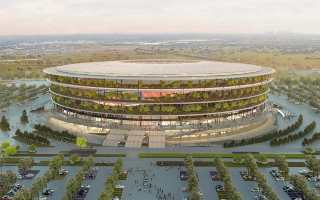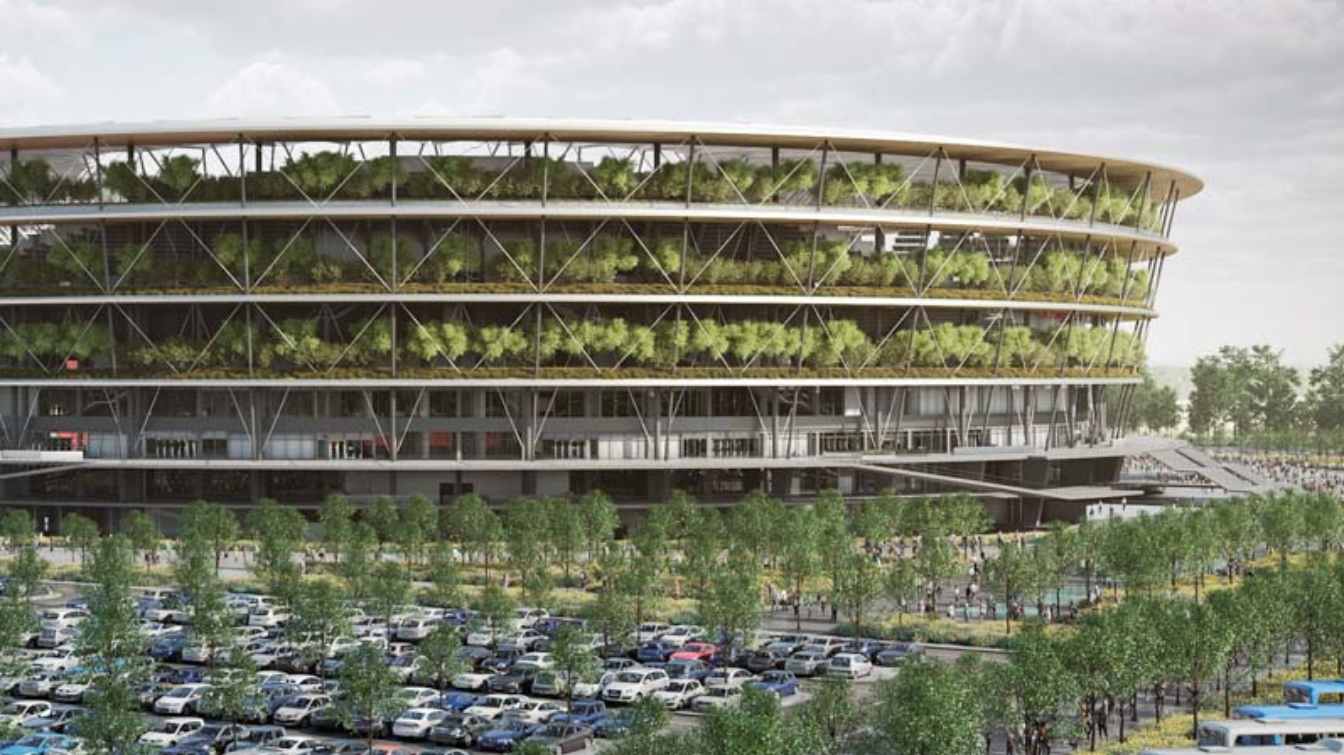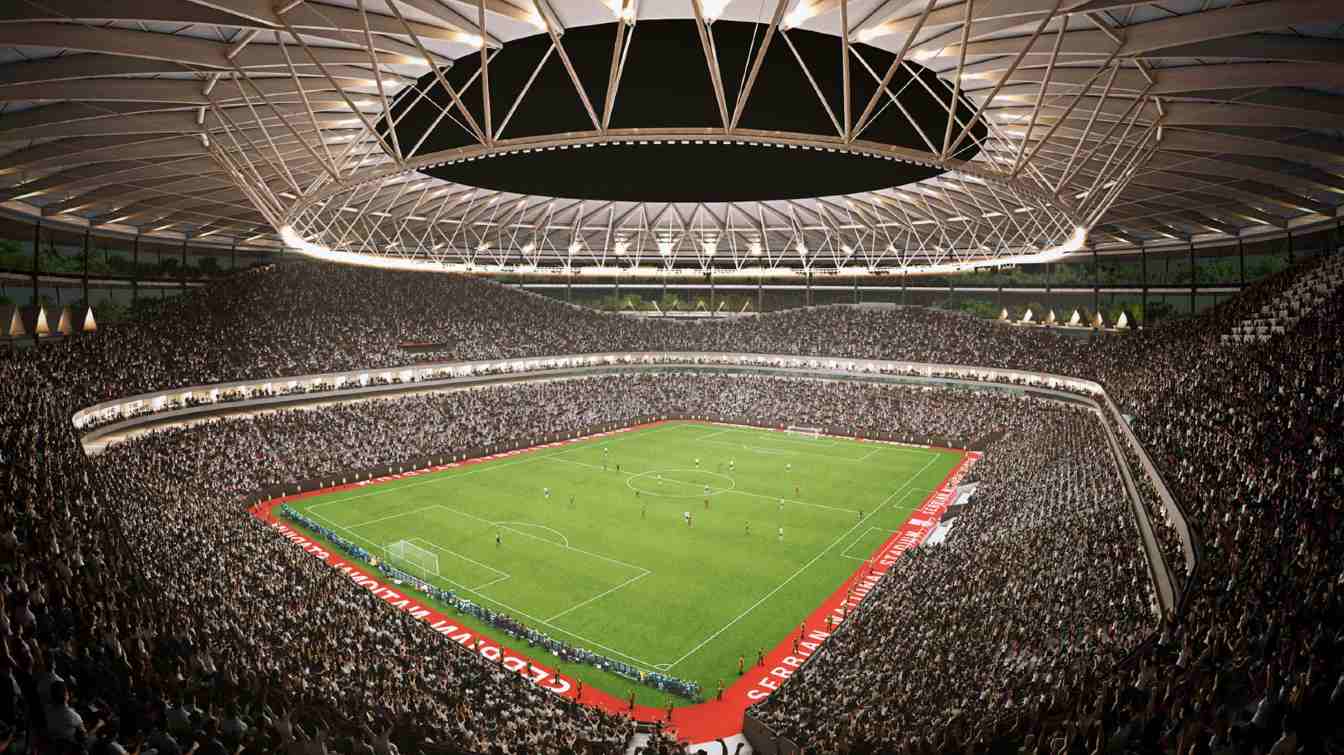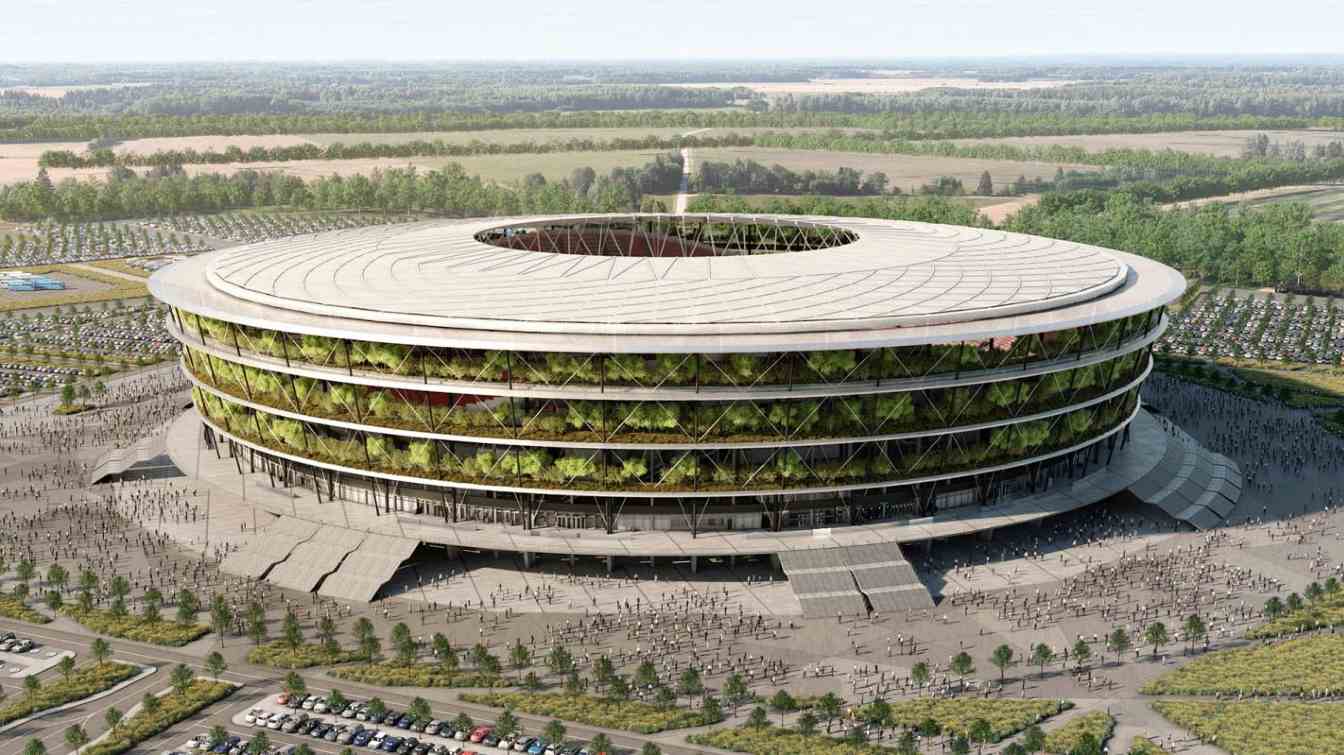Serbia: Controversy surrounding national stadium in Belgrade
source: StadiumDB.com; author: Paulina Skóra
 On May 1st, the cornerstone for the new national stadium was laid in Surčin, located 15 km from Belgrade. The President of Serbia has promised that the stadium will be one of the most modern in Europe and will be a "true masterpiece".
On May 1st, the cornerstone for the new national stadium was laid in Surčin, located 15 km from Belgrade. The President of Serbia has promised that the stadium will be one of the most modern in Europe and will be a "true masterpiece".
Advertisement
Construction started without necessary analyses
From the outset, the construction of the National Stadium has been surrounded by controversy. Less than a month after the project began, it became apparent that the necessary documents had not been provided, which should have been prepared at the very beginning of the investment process. The missing feasibility study includes technical, financial, market analyses, and risk assessments for the project before construction work commenced.
The Serbian Ministry of Finance announced a tender for the feasibility study only in February 2024, meaning the construction began without the required analyses and plans. KPMG, the company that won the tender to prepare the study, had only 54 days to complete it. This timeline raised concerns that the document would merely be a formality rather than a genuine analysis of the project's feasibility.
Political ties and nonexistent land
Two months later, it was revealed that the state had signed a contract with an investor linked to friendly politicians. Dragoljub Zbiljić, the owner of Energotehnika Južna Bačka, tasked with building a trigeneration energy system, is known for his close ties to the ruling Serbian Progressive Party. He regularly secures significant state contracts and even backed a loan for an opposition campaign in 2012.
 © Fenwick Iribarren Architects
© Fenwick Iribarren Architects
The stadium is planned to be part of a larger complex, including EXPO grounds designed to support the region’s economic development. However, as reported by Danas in early October, the National Stadium and EXPO are being built on private and nonexistent plots of land without a building permit. As a result, on September 26, the Ministry of Construction had to issue a decision rejecting the building permit application.
The official investor in the EXPO construction is the Ministry of Finance, and the application was submitted on its behalf by the Chinese company Power Construction Corporation of China Limited. The roads and infrastructure requiring construction span across 92 full plots and parts of 75 other plots in the Surčin municipality.
The Ministry of Construction, responsible for issuing building permits, is obligated to verify whether the investor has legal rights to the land. It turned out that most of the plots are public property of the Republic of Serbia, while six others belong to the city of Belgrade. One plot is state-owned, and the Surčin Municipality has usage rights to it.
Eight plots are partially or fully privately owned, but four more are problematic as they are not registered in the land registry, meaning no information is available about them. This indicates that the state failed to harmonize its actions and submitted the application before the ownership change was officially recorded. According to property experts, as long as the change is not registered, one does not legally own the property. Therefore, the Ministry of Finance must wait for approval until the expropriation process and ownership transfer are completed.
Investment more expensive than expected
On November 5th, the Fiscal Council of the Republic of Serbia published its "Assessment of the Revised Fiscal Strategy for 2025, with forecasts for 2026 and 2027." Taxpayers gained insight into important information previously unknown. It is now clear, for example, that some major projects will cost significantly more than initially announced. The construction costs of National Stadium, along with its accompanying facilities, are now estimated at 112.4 billion RSD (€960 million). This figure is much higher than the 2021 estimate, which put the cost at €257 million, with a return on investment expected in 37 years.
 © Fenwick Iribarren Architects
© Fenwick Iribarren Architects
Spending to earn: Serbia prepares for a European final
Politicians from the ruling camp seem unfazed by the rising costs and growing controversy surrounding the National Stadium's construction. Milenko Jovanov, leader of the SNS parliamentary group, stated that the state is investing three times as much in the National Stadium’s construction as it is in teacher salary increases, as the funding comes from different sources and cannot be compared.
He emphasized that although he doesn't want to be misunderstood, as someone interested in football, he knows that today football is more business than sport. Hosting even one European final in Serbia would generate significant income that could support future investments. Jovanov also noted that Serbia currently lacks a stadium that generates profits, and the purpose of the new stadium is to make money from it in the future.
 © Fenwick Iribarren Architects
© Fenwick Iribarren Architects
Serbia’s President, Aleksandar Vučić, is also optimistic, recently stating that the National Stadium will be ready by December 1, 2026. "We have sent a letter stating that the UEFA Europa League final will be held when the stadium is finished. It will be a big event, and for large sporting events, better infrastructure is needed," Vučić said.
Opposition backlash
On the other hand, Aleksandar Ivanović, a member of the National Assembly and deputy of the People's Movement of Serbia (NPS), pointed out that the government is distorting the truth and trying to censor inconvenient information. According to Ivanović, this is about the budget law and the fact that next year, €600 million are planned to be spent on the EXPO and National Stadium projects. What is particularly concerning is that some of these funds come from commercial bank loans rather than international financial institutions, which poses a risk to citizens.
The opposition has filed a vote of no confidence in Serbian Prime Minister Miloš Vučević, who was removed following a decision by Ana Brnabić, who stated that it was against her moral principles, citing two female MPs who suggested their signatures may have been used without their consent, which is unconstitutional and illegal.
Advertisement
 StadiumDB
StadiumDB